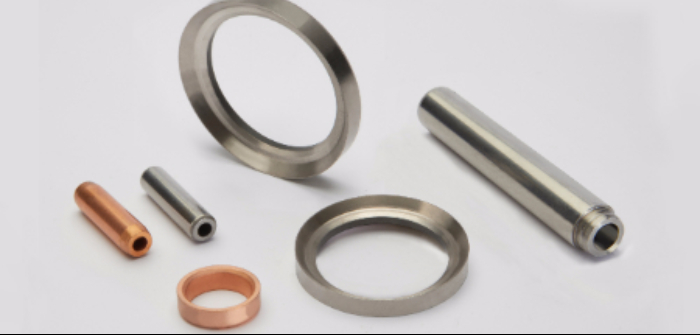Federal-Mogul Powertrain is set to debut a range of new materials for valve seats and guides with improved thermal conductivity at the 2017 IAA Show in Frankfurt, Germany. Suitable for series production, the new High Thermal Conductivity (HTC) materials and Thermal Interface Material (TIM) coating can reduce valve head temperatures by up to 70°C, allowing improved combustion and lower emissions.
“The extreme valve temperatures experienced on today’s highly boosted downsized engines can lead to reduced valve fatigue life and critical valve guide and stem seal temperatures, resulting in the need for expensive valve steel alloys. If late ignition timing is used to reduce knock and enrichment is protecting components from critical temperatures, CO2 emissions are increased,” explained Gian Maria Olivetti, chief technology officer, Federal-Mogul Powertrain. “By reducing the valve head temperatures we help to eliminate these issues, and by developing technologies suitable for series production, we are able to support mass market applications.”
Federal-Mogul also states that HTC materials can also contribute in obtaining a more even circumferential temperature distribution on the valve seat insert and surrounding cylinder head material, eliminating local hot spots for the benefit of wear reduction and decrease of temperature-related distortion.
The seat insert is the primary heat path from the valve head into the cylinder head cooling jacket. By conducting more heat away from the valve head, the new seat materials reduce the temperature in the hottest part of the combustion chamber and lower the gas temperature at the end of the compression stroke: improving knock resistance and allowing a wider range of ignition advance to enable optimisation of combustion. The materials also enable CO2 emissions reduction by eliminating the need for fuel enrichment as a means of cooling. For exhaust valve head alloys, every 20°C reduction in temperature negates the need for an upgrade to the next, more expensive alloy specification.
The valve guide is the main heat path from the valve stem to the cylinder head. By conducting more heat away from the valve stem, the new valve guide material reduces local temperatures to below the critical thresholds at which the valve stem seals and lubricating oil begin to break down.
Federal-Mogul Powertrain’s HTC materials are powder metal formulations used in both seat inserts and guides, and the specifications are highly configurable. Valve seats employ copper infiltration to improve heat transfer; valve guides, which see lower temperatures and require porosity in order to retain oil, use a subtle combination of free copper particles and fine interconnected copper alloys. In the case of dual layer composite valve seat inserts, the secondary material of the insert is no longer simply a low cost ‘carrier’ for the functional seating layer which contacts the valve head; it serves an engineering purpose by conducting more heat away from the valve head.
Testing carried out at Federal-Mogul Powertrain’s Burscheid, Germany test centre on the latest-generation turbocharged gasoline engines with direct injection has shown the effectiveness of the new materials. A combination of HTC and TIM technologies reduced peak inlet valve head temperatures by between 26 and 32°C. The improvement in exhaust valve head temperatures was even more marked; on a solid valve the peak was reduced by up to 70°C and on a hollow, sodium-filled valve, by up to 67°C. The test results have been used to correlate predictions from Federal-Mogul Powertrain’s advanced thermal simulation programs. These allow future applications to be accurately assessed, and optimum materials selected, while the engine design only exists in an early concept stage.


